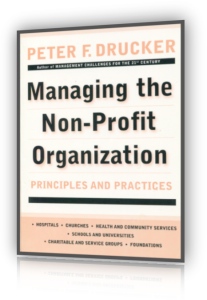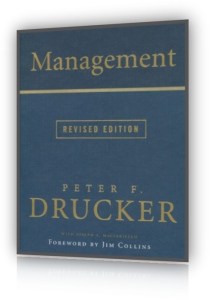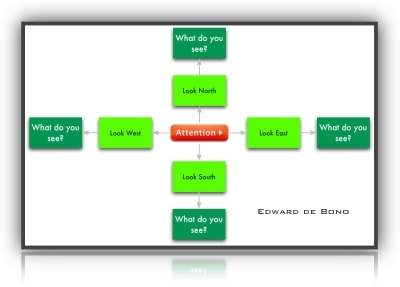What do you want to be remembered for?
From Managing the Non-profit Organization by Peter Drucker. This is also discussed in chapter 47 of Management, Revised Edition
 
Amazon link: Managing the Nonprofit Organization
Amazon links: Management Rev Ed and Management Cases, Revised Edition and Management Cases, Revised Edition
See contents of Management Cases, Revised Edition

When I (Peter Drucker) was thirteen, I had an inspiring teacher of religion, who one day went right through the class of boys asking each one, “What do you want to be remembered for?”
None of us, of course, could give an answer.
So, he chuckled and said, “I didn't expect you to be able to answer it.
But if you still can't answer it BY THE TIME YOU'RE FIFTY, you will have wasted YOUR life.”
YOUR (as an individual) : see The Unfashionable Kierkegaard, some basic questions and Life Design
We eventually had a sixtieth reunion of that high school class.
Most of us were still alive, but we hadn't seen each other since we graduated, and so the talk at first was a little stilted.
Then one of the fellows asked, “Do you remember Father Pfliegler and that question?”
We all remembered it.
And each one said it had made all the difference to him, although they didn't really understand that until they were in their forties.
At twenty-five, some of us began trying to answer it and, by and large, answered it foolishly.
Joseph Schumpeter, one of the greatest economists of this century, claimed at twenty-five that he wanted to be remembered as the best horseman in Europe, the greatest lover in Europe, and as a great economist.
By age sixty, just before he died, he was asked the question again.
He no longer talked of horsemanship and he no longer talked of women.
He said he wanted to be remembered as the man who had given an early warning of the dangers of inflation.
That is what he is remembered for—and it’s worthwhile being remembered for.
Asking that question changed him, even though the answer he gave at twenty-five was singularly stupid, even for a young man of twenty-five.

This topic is also part of Drucker's My Life as a Knowledge Worker and in chapter 47 of Management, Revised Edition

... replace the quest for success with the quest for contribution.
(to the society of organizations , knowledge society, and network society moving in time )
The critical question is not, “How can I achieve?”
but “What can I contribute?”
The Daily Drucker
Intelligence and behaviors

From Peter’s Principles
Rubin: Business is a disappearing art.
Days come, days go.
If you fix a problem, your reward is that it disappears.
What are we doing that’s good enough to last?
Drucker: The only thing that matters is how you touch people.
Your legacy—how you want to be remembered—is a potent measuring stick for anyone who cares about making a difference, not just making a living.
How can you be remembered best for what counts?
It’s a question that nags at Drucker.
“Never have we been so fixated on the soul, the cult of personality in business,” he says.
“Permissive business frightens me.
The test of a leader is not what happens during his lifetime but what happens when he leaves.
“Every 50 years in the history of the West we’ve had extreme adulation of big wealth always followed by a period of extreme condemnation of great wealth,” he observes.
“The enormous period of worshipping great wealth of the 1880s was followed by the progressive decade and the antitrust laws; in the 1920s we had the same worship followed by the 1930s.
“There is only one difference today: the very rich no longer matter; they are totally irrelevant economically.
They are merely celebrities.
J. P. Morgan at his peak had a liquid fortune great enough to finance the entire economy—all capital needs—for four months.
The capitalization of Bill Gates is probably more than J. P. Morgan ever had.
But Gates’s $40-billion fortune could finance the economy for less than a day.
It’s the mutual funds and the pension funds that matter.
If Gates’s wealth disappeared, we wouldn’t notice.
“Nobody talks anymore about how essential capital is to capital formation, and nobody screams that the Gateses of the world are exploiters, either.
They’ve become irrelevant.
The moment they retire they’re gone.
The important thing is Microsoft (a society of organizations), not Bill Gates.”
Rubin: I ask Drucker about his own legacy.
What is he proudest of having achieved in his life?
He seems momentarily surprised at the question.
But then he answers quietly: “None of my books or ideas mean anything to me in the long run.
What are theories?
Nothing.
The only thing that matters is how you touch people.
Have I given anyone insight?
That’s what I want to have done.
Insight lasts; theories don’t.
And even insight decays into small details, which is how it should be.
A few details that have meaning in one’s life are important.”

Good intentions: the road to hell
The mistake most people make when they move into the second half is to rely on good intentions
According to Peter, good intentions (“I want to do something significant”) is only a starting point.
The goal is results and performance that fulfills a clearly stated mission—something that needs doing—something that creates value for a customer (something that is important to them as human beings—not the typical marketing BS).
Peter told me over and over, “All results are on the outside.
On the inside is only cost and effort.”
… Another phrase I heard over and over in virtually every conversation with Peter has shaped my thinking: From good intentions to results and performance.”
Peter contended that most nonprofit organizations, almost all big foundations, and a good deal of government spending are invested in “good intentions.”
Outspoken About Outcomes for Nonprofits
Leap of Reason: Managing to Outcomes in an Era of Scarcity
How to guarantee non-performance
What results should you expect? — a user’s guide to MBO
In his typically brusque style, he once told me, “Tell your rich friends money has no results
If money were what made the difference, Egypt would be Japan.”
Peter wasn’t speaking against money.
He was simply saying that money alone won’t get results.
It might even impede results.
Bob Buford
Beyond Halftime

Google site search: to be remembered for
See Josh Abrams and part V of Managing the Non-profit organization for more on SELF-development.

Examples of what people are remembered for can be found in obituaries—a list compiled in 2005, my delicious | remembered for tag or Yahoo's obituaries in the news.
Adventures of a Bystander also contains examples.

Working on the
"remembered for" question
requires time investments.
(calendarize this?)
It is attention-directing work.

Larger
|
![]()

![]()